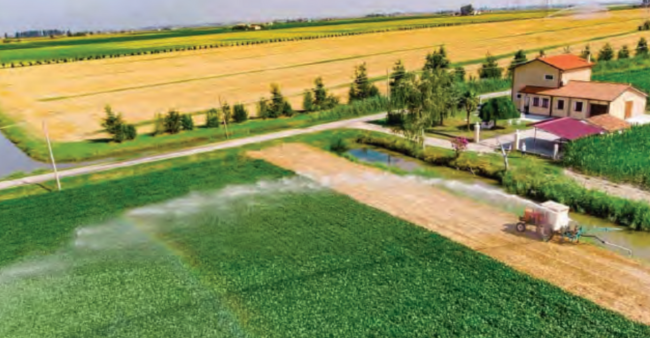In a world where the global population is expected to reach nearly 10 billion by 2050, the pressure on our agricultural systems to produce enough food is greater than ever. Achieving food security, the state in which all people have consistent access to enough safe and nutritious food to maintain a healthy and active life, is a pressing concern. However, this goal is intrinsically tied to the health of our soils, and the solution to this challenge lies in soil testing for sustainable agriculture. Soil testing is not merely a technicality but a vital practice that ensures both nutrition for the crops and food security for the people. In this article, we will explore the significance of soil testing in the context of sustainable agriculture for nutrition and food security.
Understanding the Importance of Soil
Soil is a precious resource that is often overlooked. It’s not just dirt beneath our feet; it is the foundation of our food system. Healthy soil is a living ecosystem, teeming with microorganisms, minerals, and organic matter. It serves as a home for plants, a reservoir for water, and a source of essential nutrients. These nutrients are absorbed by plants and, in turn, consumed by humans and animals. Hence, the quality of soil directly affects the quality of the food we grow.
Challenges to Food Security
Several factors contribute to the challenges of food security:
- Rapid Population Growth: As the global population increases, so does the demand for food. To meet this demand, agriculture must produce more, but without harming the environment.
- Climate Change: Climate change is causing unpredictable weather patterns, which can disrupt agricultural practices and reduce yields.
- Soil Degradation: The depletion of soil health due to poor farming practices, erosion, and pollution threatens our ability to grow nutritious food.
- Nutrient Deficiency: Soil depletion leads to nutrient-deficient crops, which can result in health issues for those who rely on these foods.
The Role of Soil Testing
Soil testing is a fundamental practice that can address many of these challenges. It involves analysing soil samples to determine their nutrient content, pH level, and overall health. This information is critical for farmers, as it helps them make informed decisions about fertiliser application and crop selection.
1.Optimising Fertiliser Use: By knowing the nutrient content of the soil, farmers can apply the right type and amount of fertilisers, reducing waste and environmental impact.
2.Preventing Overuse of Chemicals: Unnecessary or excessive fertiliser application can lead to soil degradation and water pollution. Soil testing prevents these harmful practices.
3.Crop Selection: Soil tests guide farmers in selecting the most suitable crop varieties for their specific soil conditions, enhancing crop productivity.
4.Early Detection of Problems: Soil tests can identify issues like nutrient deficiencies or high soil acidity before they severely impact crop health.
Promoting Sustainable Agriculture
Sustainable agriculture is the key to ensuring long-term food security while preserving our environment. By promoting sustainable agricultural practices, we can maintain and improve soil health, ensuring that it continues to provide us with nutritious food for generations to come. Here’s how soil testing contributes to sustainable agriculture:
1.Reducing Environmental Impact: Proper soil testing and nutrient management minimise nutrient runoff and soil erosion, which can harm nearby water bodies and ecosystems.
2.Preserving Biodiversity: Sustainable agriculture, driven by soil health, supports a rich and diverse ecosystem that benefits not only crops but also the environment as a whole.
3.Economic Viability: By optimising resources and crop selection through soil testing, farmers can enhance their long-term economic sustainability.
The importance of soil testing for sustainable agriculture in the context of nutrition and food security cannot be overstated. As we face the challenges of a growing global population, climate change, and soil degradation, it is crucial that we prioritise the health of our soils. Soil testing empowers farmers to make informed decisions, reduce environmental impact, and promote sustainable agriculture. By investing in our soils, we invest in our future, ensuring that we can continue to feed the world in a way that is environmentally responsible and nutritionally sound. Food security is a complex challenge, but it starts with the very ground beneath our feet – the soil.
The author is the Founder and CEO of BhoomiSeva, HCF Tech Private Limited and distributor for Bhu-Vision (Krishi-RASTAA) which is an IOT based automated soil testing and agronomy advisory platform.

